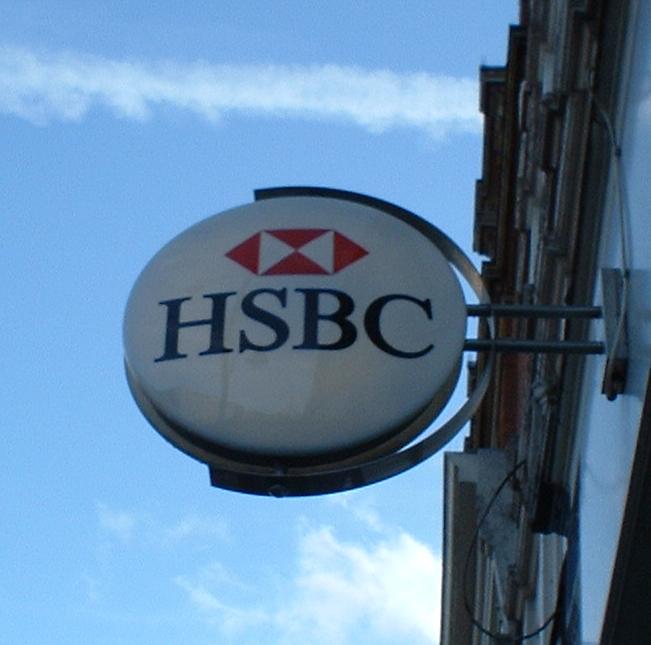Why not a single banker was jailed over HSBC’s billion-dollar money laundering scandal

Ten years after the bank admitted enabling El Chapo’s Mexican drug cartel, the drug lord is serving a life sentence but bankers only faced fines. Whose job is it to police global finance?
No senior banker went to jail over 2008; no HSBC banker was charged, let alone went to jail, when the bank admitted in 2012 to enabling the laundering of billions of dollars of drugs money for El Chapo and his Mexican Sinaloa cartel.
The reason, as I explain in my new book Too Big to Jail – Inside HSBC, the Mexican drug cartels and the greatest banking scandal of the century, is that HSBC literally was too big.
The British government, in the shape of then-Chancellor George Osborne, went to bat, persuading the Americans – who were anxious to press charges – to back off. Osborne argued that they risked bringing down not only the bank but also the entire global financial system, such was HSBC’s size and reach.
No hard evidence was offered for this assertion. Yet in the end, the US authorities relented, and HSBC was fined $1.9bn, the largest amount in US history, and agreed to reform its ways under a deferred prosecution agreement (DPA).
HSBC admitted everything: how it had become a vast laundromat for the Mexican mob, even acknowledging that a tape existed on which a gang boss described HSBC as “the place to launder money”. Even by the dismal standards of its own industry, HSBC’s behaviour was truly shocking.
The Sinaloa cartel operates in the “Golden Triangle” of rural, mountainous states in northwest Mexico. The isolated region is a major producer of Mexican opium and marijuana.
According to the US Attorney General, the Sinaloa was the world’s number-one drugs trafficking organisation, responsible for distributing millions of tonnes of narcotics across the US. And for several years, it laundered its drugs proceeds via HSBC in Mexico. The cartel had boxes made to fit cashiers’ windows, so it could deposit more dollar bills more quickly; in one visit to the bank, one of Chapo’s associates handed over $933,000, in cash.
HSBC made its international network available to the Sinaloa, so its new Mexican customers were encouraged to open dollar accounts at HSBC Mexico’s branch in the Cayman Islands. Except there was no such physical branch – it was all done on desktops in the HSBC Tower in Mexico City. In a matter of months, 60,000 accounts were opened in Cayman – often without requiring ID or paperwork.
While this was going on, HSBC management focused on making their bank even bigger, completing acquisitions around the world. Politicians fawned over them – the bank’s head for much of this period, Stephen Green, was made a life peer and a trade minister, a colleague of Osborne, in the UK government.
The greed and ambition of a drug lord and his business acumen – because Chapo was a businessman – and the greed and ambition of a major bank, were perfectly suited.
Chapo went to prison, as did many of his cronies, right down to the lowliest street dealers. They, like us when we commit wrongdoing, are not given the option of a DPA. Corporations and their chiefs, they are not the same: they are able to negotiate their way out of prison.
The bankers remain free – there was not even an official inquiry in the UK, despite HSBC being the country’s biggest bank. HSBC grew so big that even when it was found out to have sinned – or at least when its executives could, and perhaps should, have been interrogated in a court of law – that was not allowed to occur.
The then-US Attorney General Eric Holder explained about HSBC and its work for Chapo: “I am concerned that the size of some of these institutions becomes so large that it does become difficult for us to prosecute them when we are hit with indications that if we do prosecute – if we do bring a criminal charge – it will have a negative impact on the national economy, perhaps even the world economy.”
Growing their bank so big provided the HSBC bankers with a “Get Out of Jail” card. Just as no banker went to jail in 2008, no banker went to jail for facilitating money laundering for the Sinaloa mobsters.
In 2019, Chapo received life plus 30 years and he was ordered to forfeit $12.6bn. The bank that helped him wash his cash so he could buy weapons, drugs, and feed his luxury lifestyle, however, was fined what amounted to just five weeks’ profits.
As part of its settlement, HSBC promised to reform it ways. But in December last year, it was fined £63.9m, this time by the UK Financial Conduct Authority, for “serious weaknesses” in its money laundering processes.
To a company like HSBC, this is treated as a cost of doing business, it’s written off. Without the prospect of prison there is no incentive for their bosses to behave properly – the very real threat of jail is all they will understand.
It’s what the former Bank of England governor, Mervyn King, described as “moral hazard” when we deemed banks “too big to fail” in 2008. Sure enough, along came HSBC. We’ve created a rod for our own backs. Unless we get tougher and start jailing those responsible, we can expect more of the same.
Chris Blackhurst’s ‘Too Big to Jail – Inside HSBC, the Mexican drug cartels and the greatest banking scandal of the century’ (Macmillan, £20) is out now.
Article credit: https://inews.co.uk/news/long-reads/hsbc-money-laundering-scandal-why-no-banker-jail-1700793
